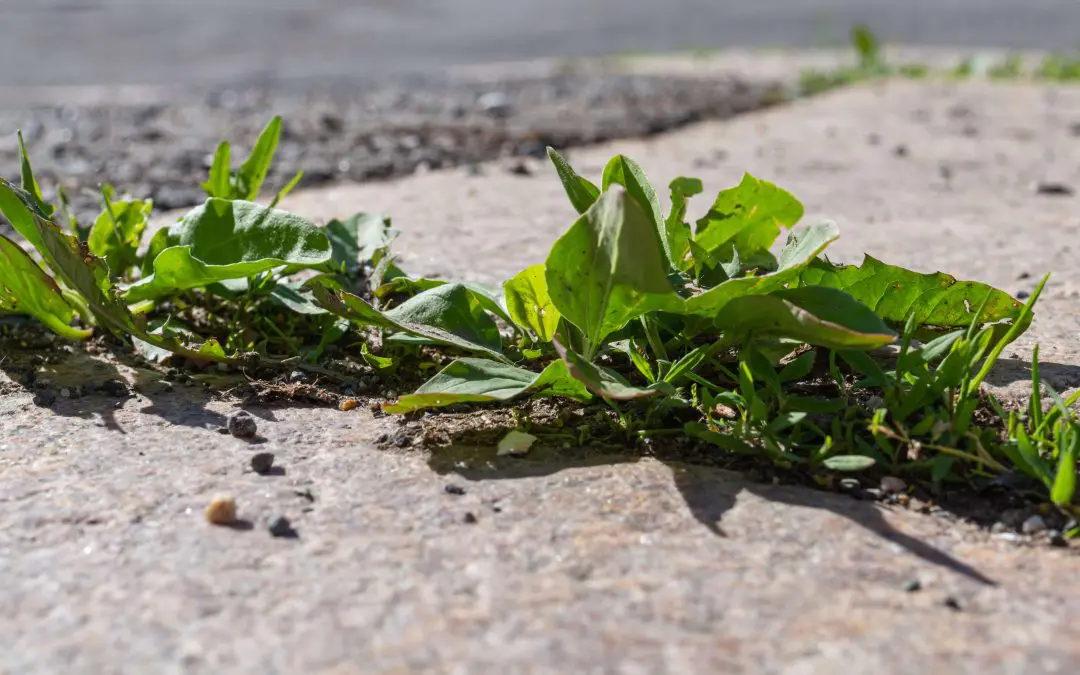It’s that time of year when pesky plants start popping up through the cracks in your driveway and walkways. Weeds on hard surfaces are a particular nuisance, marring the clean lines and generally looking untidy. While chemical solutions are out there, many homeowners are looking for more natural ways to tackle these sprouts. Here’s how to use vinegar weed killer on paved surfaces.
Why Vinegar Weed Killer Works Wonders on Weeds in Cracks
Why vinegar? Think back to science class! Acetic acid, the active component in vinegar, is a powerful desiccant. When it hits a weed’s foliage, it rapidly draws moisture out of the plant tissue, essentially drying it up and causing it to wither and die. This makes it particularly effective on young, tender weeds and those exposed directly on surfaces like driveways and walkways with less soil buffer.
It’s important to understand that vinegar is a non-selective herbicide. This means it will harm any plant it touches, not just the weeds. This is precisely why it’s an ideal solution for paved areas where you don’t have prize-winning petunias growing in the cracks. On lawns or garden beds, vinegar is a no-go because it will damage your grass and desired plants, too. But it’s perfect for annoying weeds.
Getting Your Vinegar Arsenal Ready
Before you head out to battle the weeds, a little preparation goes a long way. First, you’ll need your vinegar. Standard household white vinegar (around 5% acetic acid) can work on small, young weeds, but for a bit more punch, consider horticultural vinegar which has a higher concentration (often 10% or 20%). Just be aware that higher concentrations are more potent and require extra caution – think gloves and eye protection!
You’ll also need a spray bottle. A dedicated garden sprayer is ideal for larger areas, but a clean, empty spray bottle will work for smaller patches. Choose a warm, sunny day to apply the vinegar. Sunlight helps boost vinegar’s effectiveness, and a lack of wind ensures you’re only spraying the target weeds and not accidentally drifting onto other plants nearby.
Time to Target Those Troublesome Weeds!
With your supplies ready and the sun shining, it’s time to apply. Fill your sprayer with vinegar. There’s no need to dilute it, especially if you’re using standard household vinegar. Get up close and personal with the weeds. Aim the spray directly at the foliage, coating the leaves thoroughly. You want the vinegar to stick to the plant, not just run off the pavement.
Be precise! Remember, vinegar doesn’t discriminate. If there are desirable plants growing right next to the paved area, shield them with a piece of cardboard or plastic while you spray the weeds. You’ll likely see results fairly quickly, sometimes within hours, especially on a warm, sunny day. The leaves will start to wilt and turn brown.
The Aftermath and What to Expect
After you’ve applied the vinegar, give it time to work its magic. You’ll see the weeds start to droop, then get brown and crispy. For small weeds, one application might be enough. Larger, more established weeds, or those with deeper root systems, might require a follow-up application a day or two later.
Once the weeds have completely died, they often become brittle and easy to sweep away. You can brush them up and dispose of them.
Important Considerations for Paved Perfection
While vinegar is a great natural option, it’s good to be mindful of a few things. As mentioned, it’s non-selective. Also, while generally safe for concrete and asphalt, prolonged exposure to highly concentrated vinegar could potentially cause some minor etching on certain types of paving over a very long time, though this is less likely with standard household strength used for occasional weed control. Always test a small, inconspicuous area first if you have concerns about your specific paving material. Use this method on a sunny day, targeting the weeds directly, and you’ll be surprised how effective it is!
FAQs: Vinegar Weed Killer
Is vinegar weed killer safe to use around pets and children?
Once the vinegar has dried, it generally poses minimal risk to pets and children. It’s best to keep them away from the area during application and while it is still wet. Always supervise children and pets in treated areas.
Can I mix other things with vinegar to make it more effective?
Recipes online sometimes suggest adding soap or salt. While soap helps the vinegar stick to the leaves better, salt can damage soil and paved surfaces over time and is not recommended for long-term use. Stick to vinegar alone for the safest approach on driveways and walkways.
Will vinegar prevent weeds from coming back?
Vinegar kills the existing weed foliage but doesn’t typically provide long-term prevention, especially for perennial weeds with established root systems. Regular application as new weeds appear is key to keeping paved areas clear.
Cole’s Inspection Services provides home inspection services to Statesville and the surrounding area in North Carolina. Contact us to schedule an appointment.

